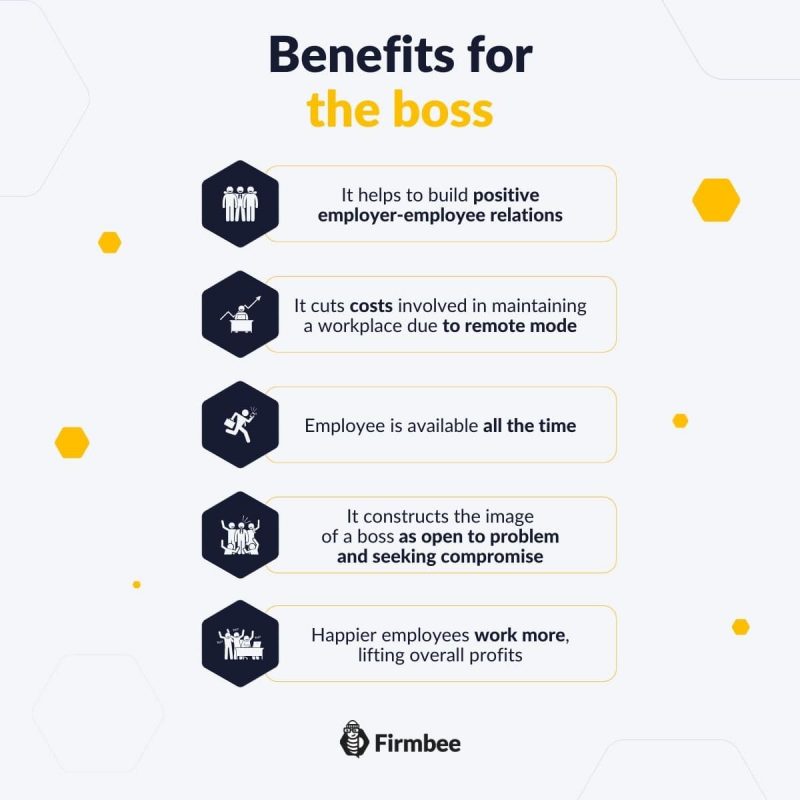At this time, drawing a clear line between the private and professional life is becoming arduous. Winning bread provides for family making everyday life bearable for most and wonderful for some. But besides that sole purpose, work constantly pervades as one of the favorite topics for conversations among friends. Some argue for separating these two spheres to maintain balance, while others on the contrary, postulate that we should integrate in order to thrive. Who is right and why? Today we would like to answer that question and ponder over latest trends in professional lifestyle. If you’d like to as well, take a minute to check out our review.
Work-life integration vs work-life balance – table of contents:
- Work-life balance – a guarantee for a better life
- Sounds great but how to put it into practice
- An approach unlike any other
- Benefits for everyone – boss and employees
- Is new trend better than previous concepts?
Work-life balance – a guarantee for a better life
The concept of time management called work-life balance (WLB) was born in the United Kingdom in the late 1970s and early 1980s. Aimed at addressing the arresting issues praying on the British society like workaholism, professional burnout and family, it concluded that poor distinguish between the spheres of domestic and professional duties could have beer the root of the problem.
For years, numerous pitfalls have been connected to incompetent time management. One in which the two spheres interact too much and disrupt a person’s principles and values. What happens when you overdo it? You may experience stress, poor mental health, disappointment, regret, addiction tendencies, decreased self-esteem, and decreased family security.
Work-life balance means the ability to have, nurture, and draw the line between the private (e.g. health, family, leisure time) professional (e.g. career, ambition and development) lives. This balance focuses on finding great joy from life while maintaining a coherent whole between all its spheres. Only such harmony – according to many – can guarantee happiness, well-being and fulfillment.
Contrary to popular belief, devoting one’s entire life to a career or solely to family matters won’t lead to greater satisfaction r achievements. WLB postulates that you have to let go of the idea that you work every day, otherwise, you’ll never be truly happy.
Sounds great but how to put it into practice
Many employees and employers have for years believed in the idea of work-life balance. However, in contrast to WLB, a different worldview has emerged that focuses on an assumption that private and professional lives are easier and more effective to combine than to divide.
Work-life integration is explicitly fresh trend in our society, gaining new acolytes steadily as our words change. It postulates integration – joining the most important human spheres. The theory assumes a completely different approach to lifestyle than the work-life balance takes. It allows for a specific interaction of professional and personal spheres. It is an art of constant compromise. At first, it may arouse objections, even arguments, but those who practice similar behaviors feel the positives, impossible to achieve in WLB.
An approach unlike any other
The concept of work-life integration for many people seems more natural and achievable in a way that requires little effort. Such time management requires setting rules between the employer and the employees, as well as the working person and the rest of the family.
A situation cannot occur where: the employee talks to his wife at the place of employment about everyday matters, and when the boss wants to get in touch (when the employee is on vacation), no one answers.This concept seems to be ideal for young people, where the freelance career is growing in value, and friends are very often found among people at work, or even in the form of the boss himself. Older people prefer the balance style.
A point to notice is that a person who does not explicitly declare his support for any concept behaviorally is closer to the rules of work-life integration. Some spheres of life naturally interpenetrate each other, and an attempt to separate the private from the professional requires great effort. A young and working mom, feeling a strong desire to talk to her child on the phone – will probably call the babysitter. A husband who experienced a hard day at work – will probably come home and start telling about the unpleasant experience. Working remotely? In the age of the coronavirus pandemic, it’s the perfect way for both worlds to intermingle and interact.
Benefits for everyone – boss and employees
The concept work-life integration gains popularity. It actually is a movement, a way of life that derived as an alternative to people who cannot or do not maintain a balance between the spaces of personal life. By taking this presumed hindrance as an asset, many advocates gave rise to the contemporary working ethos. A model where there is no boundary between work and life, you work seven-days-a-week for 24h, remote, flextime, anything to adapt to changing conditions. Are there any benefits of taking that approach?

For the employer:
- It helps to build positive employer-employee relations,
- It cuts costs involved in maintaining a workplace due to remote mode
- Employee is available all the time,
- It constructs the image of a boss as open to problem and seeking compromise
- Happier employees work more, lifting overall profits
For the employee:
- It Provides constant contact between the person working and the family,
- It features new possibilities – the hybrid system,
- It creates more relaxed atmosphere at work,
- It gives an extra opportunity to travel on business when one has a family,
- It allows for more integration meetings, not only among employees but also with the closest people – broadening acquaintances.
Is new trend better than previous concepts?
What to choose – a new and doubtful, but also hopeful method – work-life integration or a proven method known for years to lead a normal life – work-life balance? The choice depends on a person and their life values. If a peaceful and safe family is a priority for someone – they will certainly opt for balance and harmony. Yet, iff some strive for more and more money (e.g. to travel periodically with his/her family), they consciously agree on the integration of private and professional life.
Did you know that as many as 42% of employers declare that they also maintain private relations with the employee? During the recruitment process, numerous people admit that very good contact with the superior is an opportunity to work in favorable conditions and a huge impact on the positive attitude to the tasks entrusted in the company. This attitude makes more and more people hear about work-life integration every day.
You may also like: Is a four day work week on the horizon?
If you like our content, join our busy bees community on Facebook and Twitter.
Author: Caroline Becker
As a Project Manager, Caroline is an expert in finding new methods to design the best workflows and optimize processes. Her organizational skills and ability to work under time pressure make her the best person to turn complicated projects into reality.


















